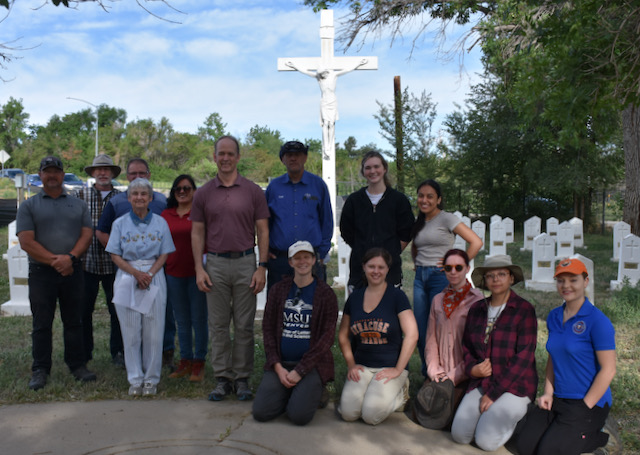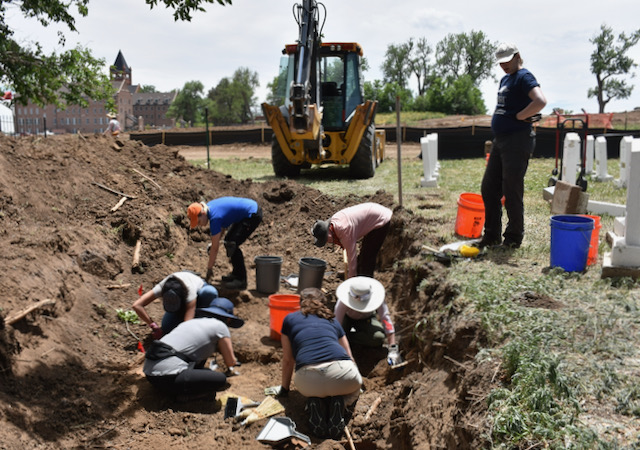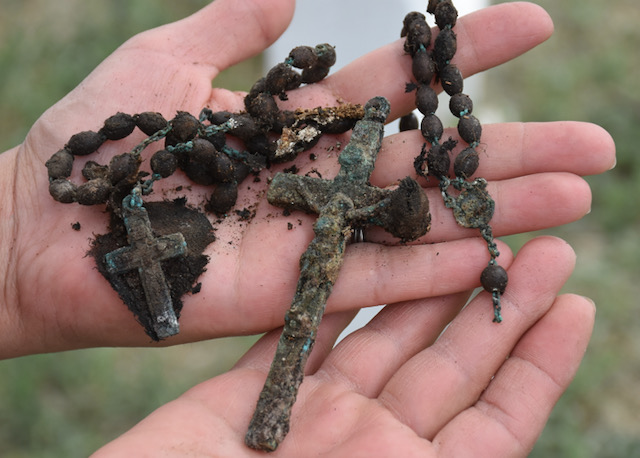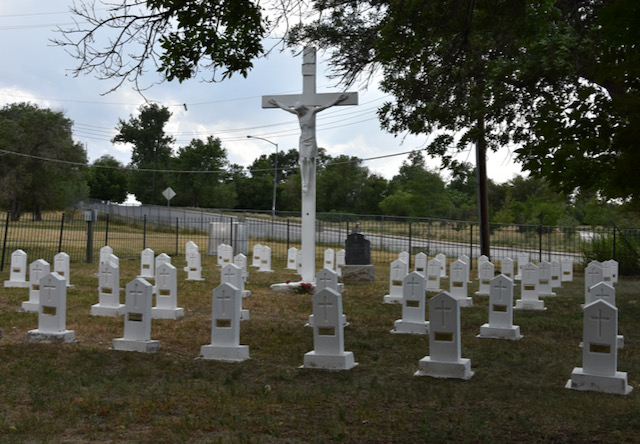Sisters of Loretto continue to educate, even beyond the grave
Posted on July 22, 2022, by Loretto Community

Now that the remains of all 62 Sisters of Loretto have been exhumed from Loretto Heights Cemetery, Loretto leadership recently gave permission to Lauren Hosek, Ph.D., to conduct an analysis of the remains of those Sisters. The anonymity of the remains of each individual will be preserved by Dr. Hosek and her team as they conduct and document their analysis.
Dr. Hosek, an assistant professor of anthropology at the University of Colorado, Boulder, is a social bioarchaeologist. She studies human skeletons to find out what they can reveal about their lives and their broader social, cultural and physical environments. Her dissertation research examined how religious identity can be seen in skeletal remains in an early medieval Christian cemetery in the Czech Republic.
Dr. Hosek described her project to Loretto as follows:
“I, and any students involved, would continue to show their remains the same respect and reverence we did in the field. …

“… I am interested in three areas: 1) Dental health and dental care, including cavities, fillings, and dentures, as this can tell us a lot about the diet of these women, but also how dental care changed across time in the 1800s/1900s. 2) Skeletal evidence for disease such as tuberculosis, as this can tell us about health risks for these women and how the Colorado climate in particular may have contributed to treatments. And 3) Arthritic changes to joints, particularly the knees as likely evidence for religious practices such as kneeling. I am interested in how people’s bodies change in response to habitual activities, particularly those that might be connected to religious identity.

“…[T]hese women were educators and … they will continue to educate through this analysis. I intend to involve the same students who have contributed to the excavation in the analysis, and they will gain invaluable training in how to ‘read’ skeletal remains. The data I collect will continue to educate future students at CU Boulder and … contribute truly unique information to our understanding of religious communities in the past (and present). I can’t stress enough what an incredible opportunity this is to have a community of women whose lives span over 100 years of change in Colorado and the U.S. more broadly, and whose religious identity connects them all.”

